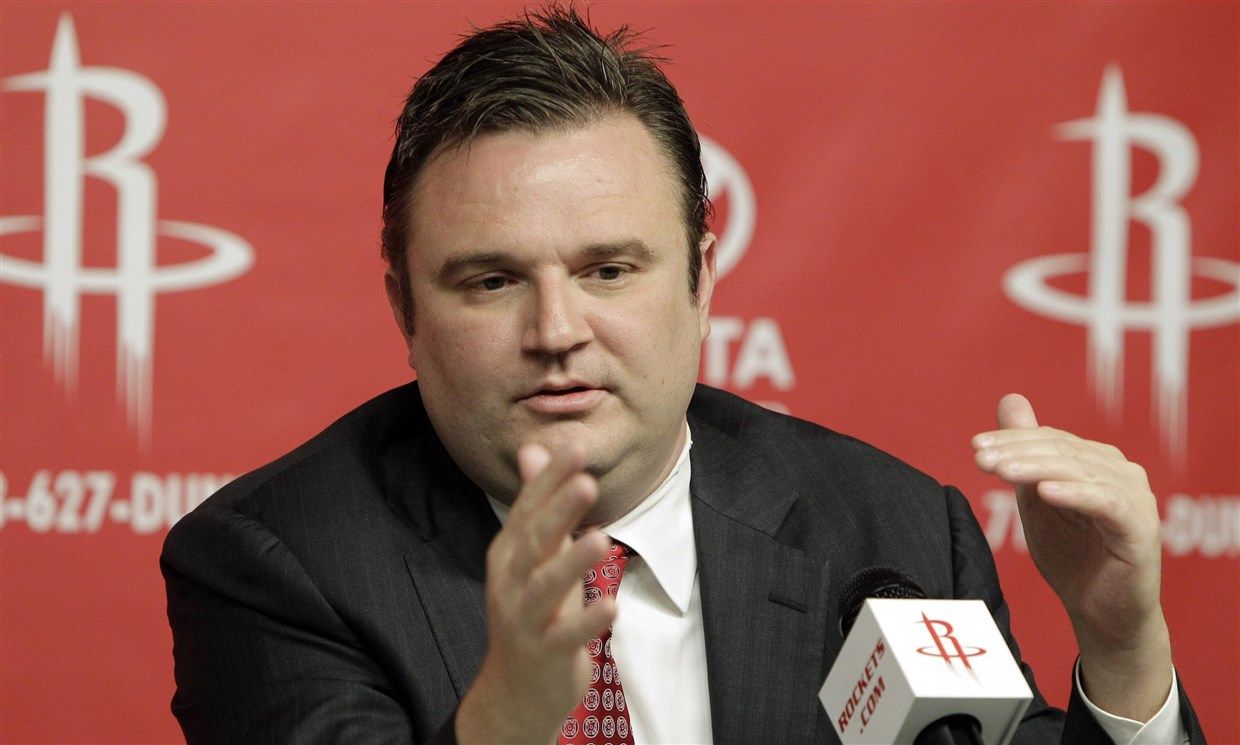China and the NBA
In a global marketplace where Chinese profits and their future potential dwarf those from any other individual territory, firms will increasingly be driven to acquiesce to the Chinese central state authority.

On Friday, October 4th, 2019, the general manager of the National Basketball Association's Houston Rockets, Daryl Morey, sent out a tweet in support of pro-democracy protests in China. This spawned reactions from the Chinese state and (state-backed) enterprises, with athletic footwear manufacturer Li Ning withdrawing its sponsorship of the team, and Chinese state television and Tencent, a leading internet and cable provider, announcing that they would remove Rockets games from their respective schedules. The Rockets owner and the NBA issued hurried statements that tried to walk back Morey's tweet, or at least distance themselves from it, which incurred backlash stateside as politicians, cultural commentators, and Twitter users alike took the NBA to task for capitulating to Chinese authoritarianism.
One tweet I saw called the NBA hypocritical because it was so "performatively woke" on domestic social justice issues, while another echoed the idea that the NBA had a responsibility to stand up to China and stand up for human rights. It's not so much that I think that they're wrong, but I think they misunderstand the network of incentives at play.
Domestically, the NBA is viewed as perhaps the most progressive sports league. That is because its players are highly visible and have accrued significant social power, which they use to create leverage toward the issues they care about. Their physical visibility, unencumbered by helmets or hats, and their gravity-defying athletic feats made them incredible pitchmen for sneakers and endorsers of lifestyle products, for which they have been handsomely rewarded. This weakened the leverage that their nominal employers had over them, which they also used to band together and negotiate one of the better collective bargaining agreements in US professional sports through their union, the National Basketball Players Association. They now even extend their social capital to the interests of collegiate athletes.
The NBA audience has also largely aligned with those players and their issues, so the League has smartly fallen in line. The contrast to, say, the National Football League, is that the NFL's most powerful and visible players—overwhelmingly white quarterbacks—are either silent on or opposed to "progressive"/"woke" social positions. The core of the NFL audience consequently does not sufficiently support such stances, and thus the NFL also falls in line. This is why Colin Kaepernick doesn't have a job.
But the NBA wasn't always progressively positioned. 20 years ago it shunned and silenced Mahmoud Abdur-Rauf, who refused to stand for the national anthem and was vocally critical of the United States' long history of tyranny. It is widely believed that Abdur-Rauf was blackballed in his prime—"Kaepernick" before Kaepernick—by the powers that be of this same, "progressive" NBA.
Ultimately, the NBA is a government-sanctioned cartel of business interests, and corporate incentives have always and will always drive its politics. In each distinct geography, it is at the mercy of the social power its players have accrued—considerably less in China than in the US, for instance—and the consequent sociopolitical sensibilities of its audience. This is then modulated by regional market realities, where China's centralized authority can render the NBA invisible and inaccessible to its highly lucrative Chinese fans. It is inevitable that the NBA would accede to Chinese national interests.
There are larger threads worth pulling at here. Many consumers in the West expect their domestic corporations to respect their purchasing power and thus acquiesce to their politics, but in a global marketplace where Chinese profits and their future potential dwarf those from any other individual territory, firms will increasingly be driven to acquience to the Chinese central state authority. And Western consumers are complicit in this, in their capacity as shareholders in Western firms. Because share price and executive longevity are functions of profits and growth, divorced from values, corporations adapt accordingly, adopting the language of progressivism where it makes "business sense," but also just as quickly dropping it where it doesn't.
Like China.
Update: NBA Commissioner Adam Silver issued a (second, "clarifying") public statement on the Association's position regarding Morey, and China's desire to see him punished in a way that would serve as a deterrent to other NBA personnel. Said Silver, "the NBA will not put itself in a position of regulating what players, employees and team owners say or will not say on these issues. We simply could not operate that way."
This is actually a relatively principled and public position for a corporation's leader to take on this issue, and I applaud Silver's courage and long-term perspective. Not everyone is quite so charitable, and eight members of the US House of Representatives have signed on to a letter criticizing Silver's response and asking the NBA to suspend activities in China.
LOL.
In a world where Apple removes apps that run afoul of state censors from the Chinese edition of its App Store, it's extremely rich to insist that the one firm already taking a financial bath for not completely capitulating "do more." It is on-brand for many of these representatives, but it is a toothless bit of politicking that ignores the (dystopian?) capitalist reality we now live in. It also ignores the complete lack of leadership on this issue from the White House, with no public statement of support for the NBA or "American values," leaving a corporation to go up against a country at a time when that country increasingly perceives itself to have leverage over our own.
God Bless America!